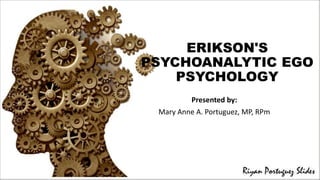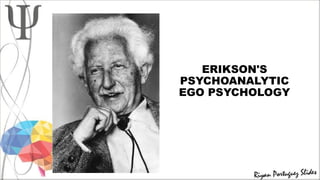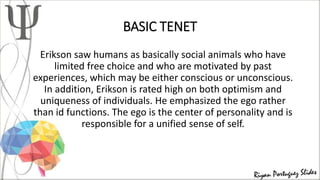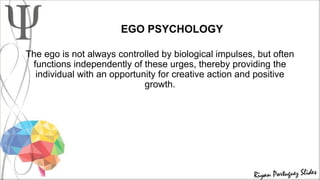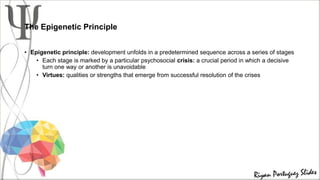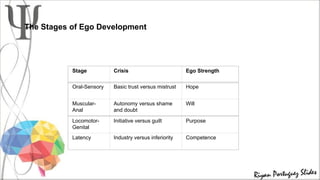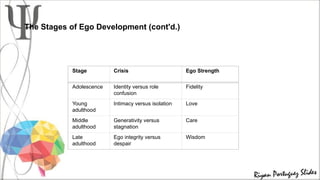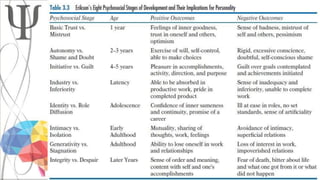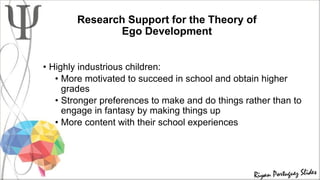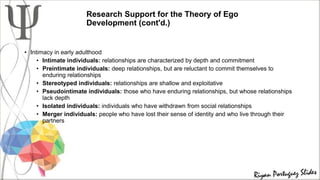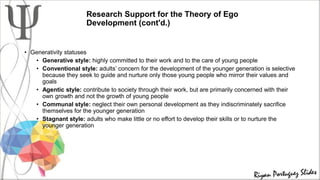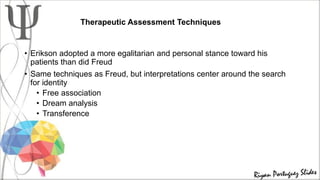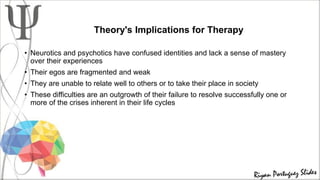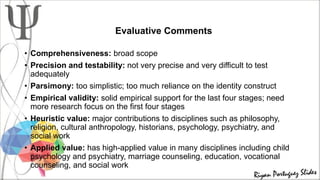Erik Erikson developed an ego psychology theory of psychosocial development across the lifespan. He proposed that people progress through 8 stages characterized by psychosocial crises that shape identity and personality. Successful resolution of each crisis results in a healthy ego and the acquisition of virtues like hope, will, purpose, competence, fidelity, love, care and wisdom. Erikson emphasized ego functions over biological urges and viewed people as social beings influenced by experiences. His theory has influenced many fields and receives research support regarding intimacy, generativity and industrial stages.
